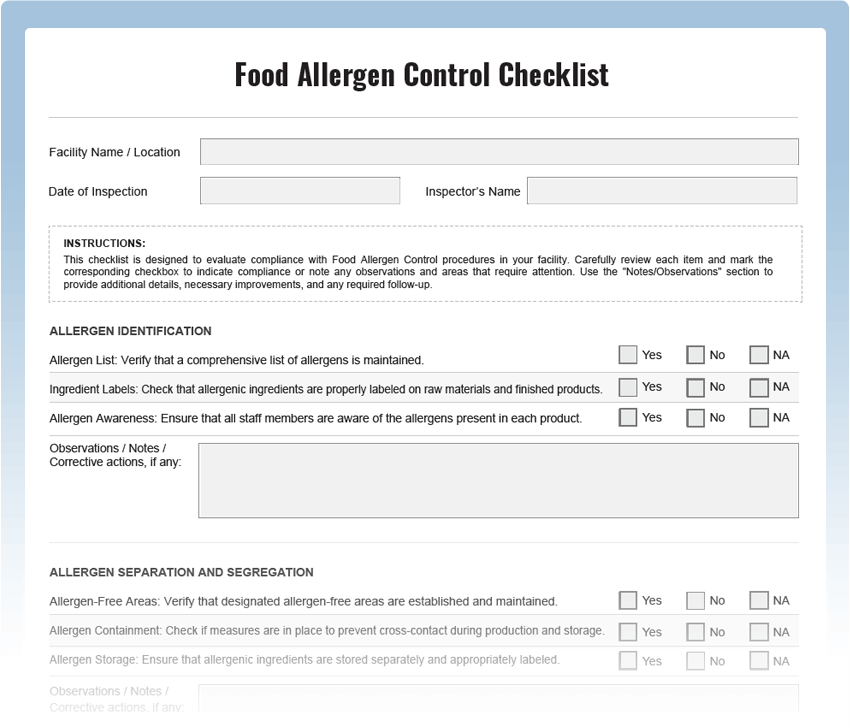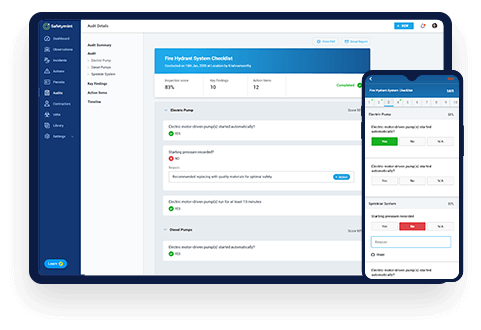Food Allergen Control Inspection Checklist
Ensure the safety of customers with food allergies using our comprehensive Food Allergen Control Checklist. This free PDF template is designed to assess and manage the risks associated with allergenic ingredients in your food preparation and service processes. By conducting regular allergen control inspections, businesses can prevent cross-contamination, protect allergic consumers, and comply with food labeling regulations.
Digitize this Checklist on Safetymint
- Create unlimited, customized checklists
- Add Actions, with automated reminders
- Works seamlessly with or without internet
- Access via web browsers, mobile or tablets

What is a Food Allergen Control Inspection Checklist?
A Food Allergen Control Checklist is a systematic tool used to evaluate and monitor the proper control of allergenic ingredients in food handling and preparation areas. It includes a series of checkpoints designed to inspect various aspects of allergen management, such as ingredient verification, storage, handling, and cleaning procedures. Regular allergen control inspections are essential for preventing allergen cross-contact, minimizing the risk of allergic reactions, and demonstrating compliance with allergen labeling requirements.
Key Areas to Inspect in a Food Allergen Control Checklist:
- Allergen Identification: Verify that all ingredients containing allergens are properly identified.
- Ingredient Handling: Ensure that allergenic ingredients are stored and handled separately from non-allergenic ones.
- Cross-Contamination Prevention: Assess procedures to prevent cross-contact during food preparation.
- Allergen Training: Evaluate staff training on allergen awareness and handling procedures.
- Labeling and Communication: Verify the accuracy of allergen labeling on menus and food packaging.
- Cleaning and Sanitization: Review cleaning procedures to prevent allergen residues.
Common Food Allergen Control Checklist Findings:
Frequent issues found during allergen control inspections include:
- Lack of Ingredient Verification: Failure to verify the presence of allergens in all food items.
- Cross-Contact Risks: Insufficient controls leading to cross-contamination between allergenic and non-allergenic foods.
Inadequate Staff Training: Employees unaware of proper allergen handling protocols.
Food Allergen Control Checklist Best Practices:
- Allergen Information Review: Regularly update and review allergen information for all menu items.
- Separation of Utensils: Use separate utensils and equipment for preparing allergenic dishes.
- Allergen-Free Zones: Designate specific areas or stations for preparing allergen-free food.
- Customer Communication: Establish clear communication channels for customers to communicate their allergen concerns.




